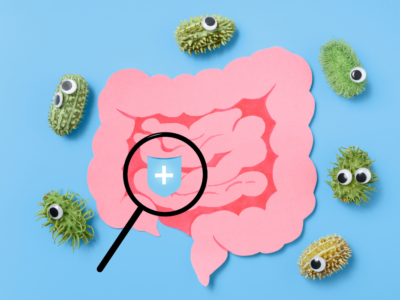World Down Syndrome Day is celebrated every year on March 21st, representing three copies of the twenty-first chromosome. As Extra Lucky moms who each have daughters with Down syndrome, it’s one of our favorite days of the year!
What is Down syndrome?
An individual with Down syndrome has a total of 47 chromosomes, whereas most other people have 46. The extra chromosome develops at conception and in most cases is not hereditary. There is no spectrum for Down syndrome, but the extra chromosome will affect everyone differently. People with Down syndrome will often have common features like almond-shaped eyes, shorter stature and a gap between their first and second toe (called a sandal gap). However, individuals with Down syndrome are as unique as anyone else!
How should I refer to someone with Down syndrome?
The Down syndrome community, unlike some other disability groups, prefer people-first language. The proper way to refer to someone with Down syndrome is “individual with Down syndrome” or “person with Down syndrome,” not “Downs child” or “Down syndrome person.”
If my child has a peer in class with Down syndrome, how should I talk to them about it?
Encourage your child to treat someone with Down syndrome like they would any other friend! Let them know that their friend may need a little more time to do something and to maybe be a little more patient. Offering help may be appreciated, but their friend is likely capable of doing things on their own as well! Talk to them about how being an ally to their friend may mean standing up and saying something (or finding a grown up!) if they see someone being unkind to them. But above all, a peer with Down syndrome can be a wonderful friend to have fun with! You can find more tips about this topic in our kid and classroom-friendly guide about Down syndrome.
What has changed for people with Down syndrome in the last few decades?
Almost everything! Just forty years ago or so, babies born with Down syndrome were often institutionalized. The life expectancy for someone with Down syndrome then was just 25 years old, mainly because they were denied life saving surgeries and not given the opportunity to thrive. Now, with proper medical care, therapies and opportunities like any other person, individuals with Down syndrome often live into their 60s or 70s. Many people with Down syndrome now go to college, hold jobs, get married and live fairly typical lives. There is still a long way to go with equality in education and careers for people with Down syndrome, but we often have to stop and celebrate how far things have come, thanks to the advocacy of parents, caregivers and other allies.
What is it like raising a child with Down syndrome?
Both of our girls are toddlers, so we have a lot more to learn, but often raising our daughters with Down syndrome is not much different than how we raised our neurotypical children! While they may have more medical appointments and therapies, our girls are more alike than they are different, and they both fit perfectly into our families. They bond with their siblings, make friends and let us know when they are happy, sad or angry just like any other child. We are very often reminded that raising a child is never a linear journey and you always have to be ready for the ups and downs, and this is the same for our Extra Lucky kiddos!



